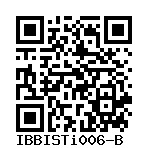F93 clone 6
IBBISTi006-B
General
Cell Line |
|
| hPSCreg name | IBBISTi006-B |
| Cite as: | IBBISTi006-B (RRID:CVCL_D1G4) |
| Alternative name(s) |
F93 clone 6
|
| Cell line type | Human induced pluripotent stem cell (hiPSC) |
| Similar lines |
UKKi035-A (NP0139-A, NP0139-3E) Donor's gene variants: MYBPC3, MYBPC3 Donor diseases: Rare hypertrophic cardiomyopathy UKKi035-B (NP0139-B, NP0139-6C) Donor's gene variants: MYBPC3, MYBPC3 Donor diseases: Rare hypertrophic cardiomyopathy UKKi035-C (NP0139-C, NP0139-24D) Donor's gene variants: MYBPC3, MYBPC3 Donor diseases: Rare hypertrophic cardiomyopathy SCVIi074-A (SCVIi599C1) Donor's gene variants: BAG cochaperone 3 Donor diseases: Hypertrophic Cardiomyopathy |
| Last update | 30th October 2023 |
| User feedback | |
Provider |
|
| Generator | Simão José Teixeira da Rocha (IBBIST) |
External Databases |
|
| BioSamples | SAMEA114561129 |
| Cellosaurus | CVCL_D1G4 |
| Wikidata | Q127382076 |
General Information |
|
| Publications | |
| * Is the cell line readily obtainable for third parties? |
Yes Research use: allowed
Clinical use: not allowed
Commercial use: not allowed
|
Donor Information
General Donor Information |
|
| Sex | female |
Phenotype and Disease related information (Donor) |
|
| Diseases | A disease was diagnosed.
|
Karyotyping (Donor) |
|
| Has the donor karyotype been analysed? |
Yes
46 XX
Karyotyping method:
G-Banding
|
Donor Relations |
|
| Other cell lines of this donor | |
External Databases (Donor) |
|
| BioSamples | SAMEA114560786 |
Ethics
| Has informed consent been obtained from the donor of the embryo/tissue from which the pluripotent stem cells have been derived? | Yes |
| Was the consent voluntarily given? | Yes |
| Has the donor been informed that participation will not directly influence their personal treatment? | Yes |
| Can you provide us with a copy of the Donor Information Sheet provided to the donor? | Yes |
| Do you (Depositor/Provider) hold the original Donor Consent Form? | Yes |
| Please indicate whether the data associated with the donated material has been pseudonymised or anonymised. | pseudonymised |
| Does consent explicitly allow the derivation of pluripotent stem cells? | Yes |
| Does consent prevent CELLS DERIVED FROM THE DONATED BIOSAMPLE from being made available to researchers anywhere in the world? | No |
| How may genetic information associated with the cell line be accessed? | No information |
| Will the donor expect to receive financial benefit, beyond reasonable expenses, in return for donating the biosample? | No |
| Has a favourable opinion been obtained from a research ethics committee, or other ethics review panel, in relation to the Research Protocol including the consent provisions? | Yes |
| Name of accrediting authority involved? | Ethical committee of the Lisbon Academic Medical Center, Lisbon, Portugal |
| Approval number | 468/20 |
| For generation of the cell line, who was the supplier of any recombined DNA vectors or commercial kits used? |
hIPSC Derivation
General |
|
| Source cell type |
A peripheral blood cell with a single nucleus. This category includes lymphocytes and monocytes.
Synonyms
|
Reprogramming method |
|
| Vector type | Non-integrating |
| Vector | Sendai virus |
Vector free reprogramming |
|
Other |
|
| Derived under xeno-free conditions |
Unknown |
| Derived under GMP? |
Unknown |
| Available as clinical grade? |
Unknown |
Culture Conditions
| Surface coating | Matrigel/Geltrex |
| Feeder cells |
No |
| Passage method |
Enzyme-free cell dissociation
EDTA
|
| O2 Concentration | 20 % |
| CO2 Concentration | 5 % |
| Medium |
mTeSR™ Plus
|
Characterisation
Analysis of Undifferentiated Cells
| Marker | Expressed | Immunostaining | RT-PCR | Flow Cytometry | Enzymatic Assay | Expression Profiles |
| POU5F1 (OCT-4) |
Yes |
|
|
|||
| SOX2 |
Yes |
|
|
|||
| SSEA-4 |
Yes |
|
||||
| TRA 1-60 |
Yes |
|
Differentiation Potency
In vitro directed differentiation
In vitro directed differentiation
In vitro directed differentiation
Genotyping
Karyotyping (Cell Line) |
|
| Has the cell line karyotype been analysed? |
Yes
46 XX
Passage number: 15
Karyotyping method:
G-Banding
|
Other Genotyping (Cell Line) |
|


Login to share your feedback, experiences or results with the research community.